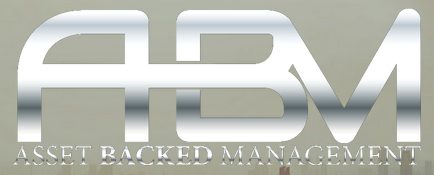Exmount Commercial Developments offers unregulated bonds paying 9.12% per year for 3 years and 10.35% per year for 5 years, paid quarterly.
The bonds can be terminated early halfway through the term (1.5 years for the 3 year bond and 2.5 years for the 5 year bond) at 45 days’ notice for a nominal admin fee of £75 + VAT.
Who are Exmount Commercial Developments?
Exmount Commercial Developments is a trading name of Exmount Construction Limited. Joe (Joey) Mason is the sole director and shareholder.
Exmount Commercial was technically incorporated in 2013, but only became active in July 2017 when ownership was transferred from a company formations outfit to Joe Mason. It is yet to file accounts as an active company.
The other board member listed in Exmount’s literature is Head of Commercial Development Edward Fall, described as previously of Minerva. I was unable to confirm whether his previous position was with Minerva Lending or the much larger and unrelated company Minerva Limited.
Update 9 May 2018: In May 2018 control and ownership of Exmount Construction Limited was passed from Joey Mason to Ousama Moufid, a French national.
How safe is the investment?
These investments are unregulated corporate loans and if Exmount defaults you risk losing up to 100% of your money.
The purpose of the loan is to allow Exmount to acquire and develop commercial property.
If Exmount fails to make enough money from its property developments, or for any other reason Exmount has insufficient funds to service these bonds, there is a risk that they may be unable to pay investors their interest and capital.
Asset-backed security
Investors’ money is secured against the underlying assets of Exmount Construction Limited. A Security Trustee (Jade State Wealth Ltd) is responsible for taking control of Exmount’s assets should it default.
Investors should not assume that because their loans are secured on these assets, they are guaranteed to get at least some of their money back through sale of the collateral if the issuer defaults. Investors in asset-backed loans have been known to lose 100% of their money (e.g. Providence Bonds and Secured Energy Bonds) when it turned out that there was no money left for investors after paying the insolvency administrator (who always stands first in the queue).
We are not in any sense implying that the same will happen to investors in Exmount Construction, only illustrating the risk that is inherent in any corporate loan notes even when they are asset-backed.
The literature states “Before each tranche [of loans] is offered and issued, the Security Trustee will check and ensure that the total outstanding value of all the bonds (including those being issued in the new tranche) will not exceed 16 times the net asset value of the company.”
If the total outstanding value of all the bonds exceeds 1 times the net asset value of the company, the collateral will be insufficient to fully repay investors in the event of default.
As the collateral – the net asset value of the company – is permitted to be as little as 6.25% of the outstanding value of all bonds (16 x 6.25% = 100%), there appears to be little point in investors relying on this security.
Early redemption option
Other than a nominal £75 charge and 45 days’ notice, there appears to be few conditions attached to the early termination option.
However, investors should bear in mind that their ability to exit the bonds early at the halfway point will depend on whether Exmount Construction has sufficient liquid funds.
Should I invest with Exmount Commercial Developments?
This blog does not give financial advice. The following are statements of publicly available facts or widely accepted investment principles, not a personalised recommendation. Investors should consult a regulated independent financial adviser if they are in any doubt.
As with any unregulated corporate bond, this investment is only suitable for sophisticated and/or high net worth investors who have a substantial existing portfolio and are prepared to risk 100% loss of their money.
Any investment offering up to 10.35% per annum yields should be considered very high risk. As an individual security with a risk of total and permanent loss, Exmount’s bonds are higher risk than a diversified stockmarket fund.
This particular bond is described as asset-backed, however, according to the literature, Exmount is permitted to borrow from investors up to 16 times the value of the assets on which the bonds are secured, so in practice this security may only cover an almost irrelevant 6.25% of investor’s money.
Even this assumes Exmount’s assets remain valuable and liquid enough to cover this much, after paying the insolvency administrator.
Before investing investors should ask themselves:
- How would I feel if the investment defaulted, the sale of the security failed to raise enough money to compensate all investors, and I lost 100% of my money?
- Do I have a sufficiently large portfolio that the loss of 100% of my investment would not damage me financially?
- Am I willing to place any reliance on the asset-backed security given that according to the literature, it may only cover 6.25% of bondholders’ money?
If you are looking for a “secure” investment, you should not invest in unregulated products with a risk of 100% capital loss.


